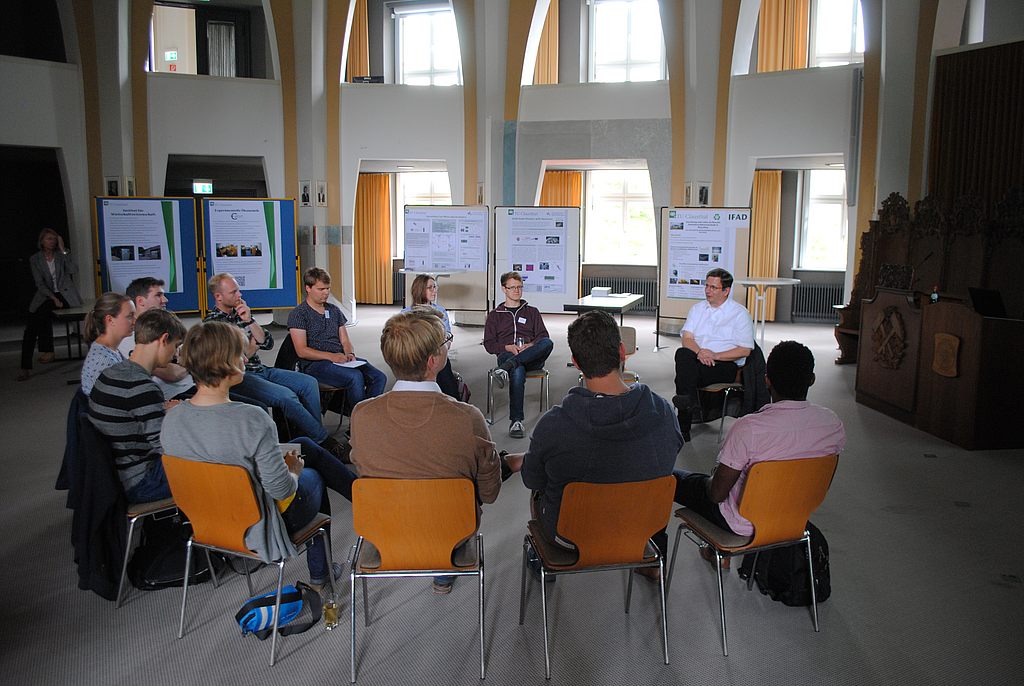Non-academic career
The non-academic job market is a very exciting and dynamic environment with many rewarding career opportunities for scientists, which is very different from the academic environment - how can a career entry into the non-academic job market be successful? What skills, knowledge and experience do companies value in addition to the specialist expertise acquired during studies and doctoral studies?
Three helpful aspects seem to play an important role in a successful transition[1]:
Firstly:Networking or getting to know the future employer/people from the company in the run-up to or during the doctoral period. |
Secondly, practical experience helps!Practical experience helps!On the one hand, this refers to experience gained during or after studies and/or doctoral studies in non-university employment, but also to activities within the framework of academic work, including various administrative tasks. |
| Thirdly: for some positions, working in a field that is thematically relevantto the institution helps. |
But what other (interdisciplinary) skills that you gain while writing a doctoral thesis can be helpful for a non-academic career?
We asked employers which skills, knowledge and experience they find particularly valuable in young professionals. The most important topics are summarized in the table:
Requirements on the job market
| COMPETENCES | KNOWLEDGE | EXPERIENCE | |
|---|---|---|---|
| PERSONALITY | MANAGEMENT | ||
job application self-presentation | project management | Language skills: German | Practical experience Industrial internships |
management team management | Basic knowledge of business administration | Language skills: English | International experience, e.g. EU-Erasmus+ |
Communication skills conflict management | Personnel and company management | Programming and software skills | Commitment, e.g. voluntary activities and committee work |
Self-reflection Willingness for personal development | Labor law and occupational safety | Entrepreneurial thinking |
Doctoral graduates who have switched to a non-academic career feel that experience in project management - the ability to work in a structured manner, which every dissertation requires, a good grasp ofnew topics, the ability to familiarize oneself quickly with new topics and a good problem-solving ability- is important in a new job. Perseverance and frustration tolerance, which were demonstrated during the doctoral period, are also frequently mentioned. Employers associate a doctorate with interdisciplinary skills and positive personality traits, such as analytical thinking and independent, structured work.
According to one recruitment agency, "PhD graduates are able to work independently and develop topics themselves. And assert themselves in the face of resistance when the going gets tough and there is a dryspell."
We recommend reading the UniWiND Special Part 1 - Career paths outside academia: 13 portraits and Part 2 - Career paths outside academia: Employers in conversation.
[1] UniWiND Special Perspectives after the doctorate Part 1 - Career paths outside academia: 13 portraits and Part 2 - Career paths outside academia: Employers in conversation

Dr. Nils Kreth
Specialist engineer in energy management at Salzgitter Flachstahl GmbH
Studies and doctorate in the fields of: Energy technologies & energy systems engineering

Dr Anja Hessler
Software developer, SSI Schäfer
Studies and doctorate in the fields of:
Business Mathematics, Operations Research

Dr. Patrick David
Development engineer, Audi AG
Computer Science and Mechanical Engineering
